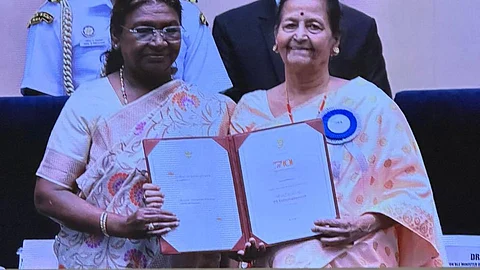
- Home
- Live Blog
- Breaking News
- Top Headlines
- Cities
- NE News
- Sentinel Media
- Sports
- Education
- Jobs

GUWAHATI: The non-feature film Assamese Hargila-The Greater Adjutant Stork, received Special Mentions at the 70th National Film Awards and was conferred with the certification on Tuesday.
The accreditation comes to film producer Mina Mahanta and director Partha Sarathi Mahanta.
Meanwhile, Parthasarathi Mahanta dedicated his award to the Hargila Army led by Purnima Devi Barman. The 'golden girl of Assam' has saved one of the world's top twenty most endangered species from extinction, credited to her activism and the women of the Dadara Pasaria area. This is one of the most successful conservation operations globally.
The under-threat Hargila, or Greater Adjutant Stork, shares the spotlight here with the dedicated conservation work put in by wildlife biologist Purnima Devi Barman. Of course, it is generally said that Barman and her "Hargila Army," a group mainly comprising local women, have been fundamental to saving this rare bird.
The movie underlines a species that has reached the brink of extinction and portrays human efforts to save it. The film was produced under PI Entertainment.
Assam has stepped up its efforts in conservation at Kamrup district, where the largest populations of Hargila reside.
Greater Adjutant Stork is one of the top ten most endangered bird species in the world, according to IUCN. As far as the grassroots conservation work in Assam is concerned, it has turned out to be a big decision.
In the past, Greater Adjutant Storks bred in the dry season: they fed on prey caught by the receding water and fed on carrion from large animals that are now extinct.
Today, these birds survive along with humanity: they forage in garbage dumps and nest in rural villages. Most of what remains of the species is located around Guwahati, feeding off a single garbage dump and nesting in nearby villages.
Since these nesting colonies are outside state-protected areas in Assam, only community conservation efforts will save the species from extinction. Due to the efforts of Purnima Devi Barman and the movement she initiated, the birds are now safeguarded, celebrated, and their numbers are increasing locally.
ALSO WATCH: